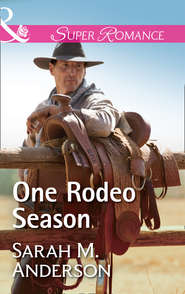По всем вопросам обращайтесь на: info@litportal.ru
(©) 2003-2025.
✖
The Beaumont Children: His Son, Her Secret
Автор
Год написания книги
2019
Настройки чтения
Размер шрифта
Высота строк
Поля
“When can I see Percy again?”
She looked up at him, her jaw set. “Ah, now that was a question. Lovely. You can see him tonight, after five. I assumed you’d come visit him.” Byron gave her a look and she rolled her eyes. “As you can see, I’m not trying to hide him from you. Can we please get to work?”
“Fine.” He’d let it go for now. But he left the ring on the table, where it glittered prettily.
Leona pulled out her tablet and handed it over. “We have three basic choices for the interior—we can try to lighten it up, keep it dim, or go for broke and make it very dark.”
Byron looked at the preliminary colors she’d chosen. One was a bright yellow with warm red accents. The next was gray with a cooler red and the last choice was a deep red that would look almost black in the shadows. “I like the yellow. I don’t want the restaurant so dim that people have to use their cell phones to read the menu.”
“Agreed,” she said. She flicked the screen to the next page. “I thought we’d want to play off the Percheron Drafts in the name—Percheron Pub?”
“No.”
“White Horse Saloon?”
He gave her a dirty look.
“No, I didn’t think so.” She grinned back. This was better—this was them as equals. This was what he’d missed. He had the sudden urge to lean over and kiss her like he’d kissed her last night, right before his world had changed forever. “I also considered bringing in the European influences. What do you think about Caballo de Tiro?”
“That’s—what?” He thought for a second. “Workhorse?”
“Draft horse, literally. Which fits the brand and also highlights the Spanish influences you’re bringing.”
He glanced at her and saw she wore a satisfied smile. “You like that one, don’t you?”
“It is my favorite, it’s true. I wasn’t sure if you’d get the translation.”
“I picked up enough French and Spanish to get by.” He gave her a look. “At least, enough to cook and fend off advances.”
She glanced back at the ring. “Oh?”
He could hear that she was trying to sound disinterested, but she wasn’t quite succeeding. “It was...well, I guess the good news was that no one cared that I was a Beaumont. That was great, actually. But a lot of people were intrigued by the American with red hair.”
Which was a huge understatement. In Paris and then Madrid, not a week went by when he didn’t leave work to find a beautiful woman—or occasionally a beautiful man—waiting for him.
“I guess that was probably fun.” Leona was now staring at her plate, pushing the potato salad around with her fork.
“Actually, it wasn’t.”
She opened her mouth to say something but then changed her mind. “Right. We’re working. What do you think of the name?”
He sighed. “Right. Working.” Besides, he didn’t exactly want to tell her that, at several points during his self-imposed exile, he’d decided to take a particularly lovely woman up on her offer, just to get Leona out of his system—only to back out before they got anywhere near a bed.
He forced himself to focus. This restaurant was his dream, after all. Caballo de Tiro—it had a good ring to it, and wasn’t too complicated to pronounce.
“I thought we could bring in touches that suggest a draft horse—wagon wheels that are repurposed as chandeliers, maybe a wagon set up outside—it’s reasonable to think parents might bring their children,” she added. “A wagon could be both decoration and something to distract kids.”
He flipped back to the colors. “So you’d paint the walls this color yellow, have red accents—”
“The tablecloths, napkins, that sort of thing, yes.”
“And accent with weathered wood?”
“And leather,” she added, leaning over to flick to another screen, which had several chairs pictured. “Rich brown leather for the seating. And maybe a few harnesses that will serve as picture frames on the walls. The whole experience would be warm and comfortable—formal without being stuffy.”
“I like it. Let’s go with that. Caballo de Tiro.”
Leona looked pleased. “That was easy. I have some other ideas...”
Byron tried not to sigh. The restaurant was important, but he felt as though he was spinning his wheels. He wanted to get back to everything else—how Percy was, if she’d marry him or if she’d fight him every step of the way—and what, exactly, she’d meant by saying he’d left her.
She shot him a look. “You hired me, after all.”
“I know,” he groaned. “But five o’clock seems like a long time off.”
“Byron, focus. I need the specs of the kitchen and then I need to call contractors and get a timeline set up, and my boss wants that as soon as possible. I’ll formalize the sketches of the interior and exterior a bit more and...”
Byron’s phone rang. “The Realtor,” he said with relief. At least one thing was happening quickly. “You eat and then we’ll talk ovens.”
“Deal,” she said.
* * *
The rest of the afternoon passed in a blur. The Realtor had a list of single-family homes ready, and she wanted Byron to come in on Saturday. Leona wanted to discuss kitchen appliances and table placements.
It was enough to give a man whiplash. It’d only been a few months ago that he’d settled into his cramped Madrid apartment, working late nights cooking for a world-famous chef and wandering the city alone, trying to lose himself in another culture.
Trying to forget about Leona Harper.
Now he would be running his own restaurant and living with Leona while they raised their son.
For a brief moment, as Leona talked about bathroom sink options, Byron wanted to go back to Madrid. Right now. This was insane, that’s what it was. Proposing to Leona so he could ensure he’d never lose custody of his son? Going to look at houses tomorrow? Debating what “message” bathroom faucets “communicated” to customers?
Living with Leona—the woman who’d nearly destroyed him? Whose father had done everything to ruin his family?
But a Beaumont would not cut and run or admit defeat. His father had not been much of a father, but Byron remembered the last conversation he’d had with Hardwick Beaumont. His father had been sitting behind his massive desk, a look of disgust on his face as he took in Byron’s flour-dusted pants. “Son,” he’d intoned as if he were passing a death sentence, “this cooking thing—it’s not right. It’s not what a Beaumont does. It’s servant work.”
It hadn’t been the first time Byron had considered running away. He’d just wanted to cook in peace and quiet, without being constantly harassed about how he wasn’t good enough. He’d been all of sixteen and thought he’d known how the world worked.
But, being sixteen, he hadn’t. Instead, he’d mouthed off. “You want me to go? Then I’ll go. I don’t have to stay here and take your insults.”
He’d expected to be disowned, frankly. No one talked back to Hardwick Beaumont, especially not his disappointment of a son. Hardwick’s lips had twisted into a sneer and Byron had braced himself.
Then, to his everlasting shock, Hardwick had said, “A Beaumont does not cut and run, boy. We know what we want and we fight for it, to hell with what anyone else says.” He’d leaned forward, his hard gaze locked on Byron. “If I ever hear you talk about giving up again, I’ll make sure you have nothing to give up. Do I make myself clear?”
“Yes, sir.” Byron had been pissed at the threat, but underneath, he’d also been confused. Had his father—what? Given him permission to keep rebelling?
He had turned and started to walk out of Hardwick’s office when his father had called out, “The rack of lamb last night—was that you or George?”











